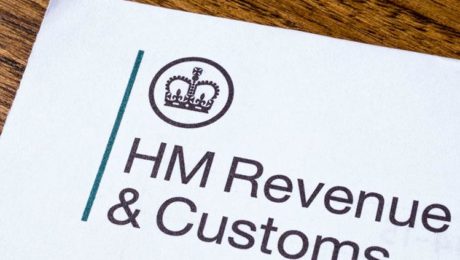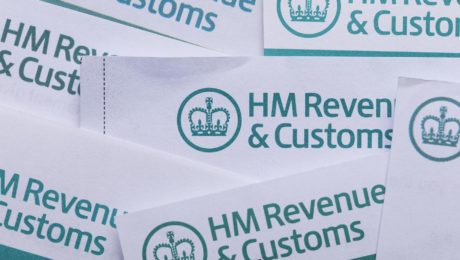HMRC piles pressure on taxpayers behind on payments
A further increase on interest paid to HMRC for late payment of taxes will hit taxpayers who are not up-to-date, warns Blick Rothenberg
Nimesh Shah, CEO at the firm said: ‘Following another Bank of England base rate to 1.75%, HMRC has confirmed that it will raise its interest rates on late tax bills to 4.25% on 23 August – a level not seen since January 2009.’
He added: ‘Since the start of 2022, the HMRC’s interest rate has increased by 1.5% – that’s the equivalent of an extra £225 per annum on a £15,000 tax liability. On the same £15,000 tax liability, you would suffer almost £650 of interest per annum.
‘With continuing rising costs rising across the board, HMRC have hiked up interest on late tax payments at the latest opportunity. It sets a worrying trend for some taxpayers who are struggling to pay their outstanding taxes, against the backdrop of other rising costs.
The threat of further interest rate rises this autumn, coupled with rising inflation, will likely see further increases in HMRC rates.
Shah said: ‘The worst is yet to come on this front, with some economists projecting the Bank of England could decide to increase the base rate to 2.5% by the end of 2022 – this could see HMRC increasing their interest rate on late paid tax to 5% by the end of the year.
‘Taxpayers who have outstanding tax liabilities should be mindful to settle as much as they can afford before there are further rate rises.
‘HMRC have also finally increased the repayment supplement rate by 0.25% to 0.75% – the first increase in this rate in over a decade. It’s quite shocking that HMRC have quickly increased the rate on late paid tax by six times the amount the equivalent repayment interest rate has gone up by this year.
‘HMRC’s meagre 0.75% repayment supplement rate means there is not any great incentive for HMRC to release repayments. There continues to be one rule for money owed to HMRC and another for taxpayers who are due a refund. Many taxpayers have seen significant delays to repayments over the last 12 months, but HMRC can continue to drag their heels with little cost to the Treasury.’
- Published in HMRC, Interest Rates, Tax return
Second payment on account tax due 31 July
Individuals who fill in a self-assessment tax returns and owe more than £1,000 in tax need to pay their latest instalment by 31 July
This affects tax which has not been collected in other ways, for example through an adjustment to a tax code, which needs to be paid via payment on account.
Payments on account are tax payments made twice a year by taxpayers to help them stay on top of their payments and spread the cost of the upcoming year’s tax.
Generally this applies to people who are self-employed or have other income from property – for most people who are employed, their tax is managed under PAYE.
Payment is spread over two instalments during the year and is calculated based on the previous year’s tax bill. Each payment is typically 50% of the last bill. A final payment is made after the actual tax return is submitted.
Kevin Sefton, CEO, untied, said: ‘The payment on account deadlines are 31 January and 31 July which means the second cut-off date is fast approaching.
‘In theory tax payment on account helps the self-employed spread out their bill. However, it can lead to more financial hardship for those who have been hit by the cost of living crisis and haven’t put the money way already.
‘We always advise individuals who have to pay these two sums every year to set money aside regularly in order to pay their liabilities at the beginning and midpoint of every calendar year.
‘If you are having difficulties paying your tax bill, don’t ignore it – contact HMRC as soon as you can, to see if they can set up a payment plan for you. It also makes sense to submit tax return information early, as this provides time for planning and identifying potential tax savings.’
- Published in Self Assessment, Tax return
Tips for completing tax returns
Although the self assessment deadline is not until 31 January, there continues to be an increase of taxpayers choosing tax returns over turkey by using the festive period to submit their tax returns online
In fact, last year a huge 31,400 taxpayers submitted self assessment tax returns between 24-26 December; with 20,200 tax returns submitted on Christmas Eve, 2,700 submitted on Christmas Day and a further 8,500 filed on Boxing Day.
Roan Lavery, CEO and co-founder of FreeAgent, said: ‘Small business owners and self-employed people have been hit the hardest over the last 24 months with the impact of both Covid-19 and Brexit. There has also been a mental health impact on small business owners since the start of the pandemic with over half (51%) of small business owners polled saying they had experienced burnout since the start of the pandemic and over a third (35%) say they are working longer hours.’
Here we set out tips and advice on how to prepare your annual self assessment return.
Get online – if you are new to self assessment, register with HMRC and give yourself a few weeks to complete the process. HMRC revealed that more than 10.7 million customers completed a tax return by 31 January 2021, of those 96% were submitted online.
Gather your files – gather all your relevant information before you can file your tax return. Depending on your circumstances, this could include proof of self-employed income, a P60, P45 or a P11D. As a basic rule, you’ll need to show any money received or earned from pretty much anywhere – including wages from a job, income from a trust, and interest from your bank account (except an ISA). If you’re a limited company shareholder, you’ll also need to provide proof of any dividends received during the tax year. You don’t want to be gathering this paperwork at the last minute, so make sure this is all in order ahead of time.
Use resources online and get professional advice if you need to – make sure to consult HMRC’s website or get help from a professional accountant or tax adviser to make sure you understand all of the regulations in place specific to your business.
Make next year easy by keeping your accounts up to date – if you keep your accounts up to date all year, then this will help you to avoid having to rush to meet the deadline for filing your tax return. This way you can enjoy your festive break with nothing hanging over your head!
‘We all deserve a rest this holiday period, so make sure you get yourself prepared in order to enjoy turkey and not tax returns this Christmas Day,’ said Lavery.
- Published in Tax return



